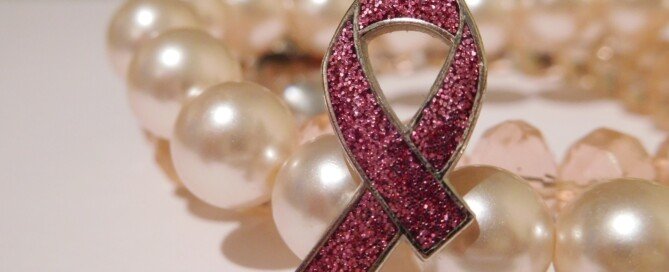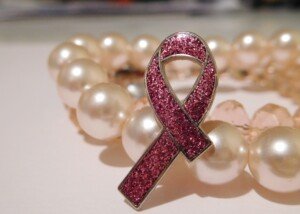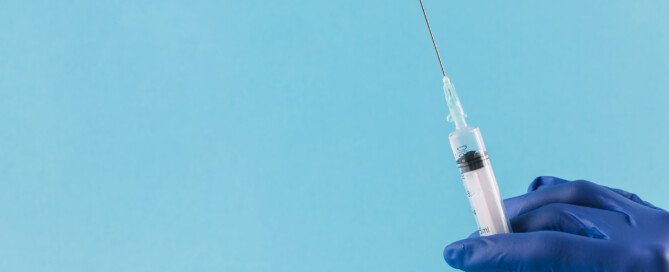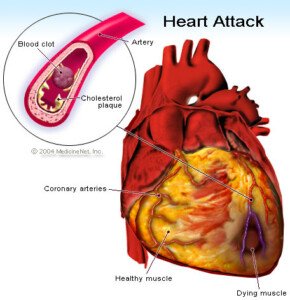Enlarged Prostate vs. Prostate Cancer: Symptom Comparison

The symptom overlap from an enlarged prostate and prostate cancer are nearly identical as far as urine-related symptoms. (more…)
Blood from UTI Can Be Visible to the Naked Eye: Appearance

Yes it’s possible to see in the toilet the blood from a urinary tract infection, and it can appear in different ways to the naked eye. (more…)
You Know You’re Ready for a Preventive Double Mastectomy When…

If you’ve been wrestling for a long time on whether or not to have a preventive double mastectomy, here’s how to tell that you’re ready for this procedure. (more…)
Best 5 Exercises to Prepare for Double Mastectomy Recovery
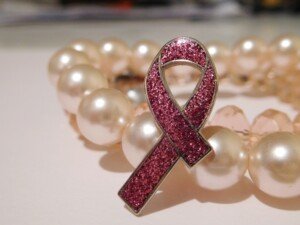
If you’re planning on a preventive double mastectomy, your recovery will be made so much easier if you train your body with five specific exercises.
These guidelines pertain specifically to a preventive (prophylactic) double mastectomy WITHOUT reconstruction.
I am a former personal trainer and lifelong gym rat, having always enjoyed putting my body through killer workouts.
As I type this I’m three days out from my preventive double mastectomy. Prior to the operation I was at a very high level of musculoskeletal fitness.
If you’re out of shape or deconditioned, you may want to delay the surgery a bit to prepare – depending on your anxiety level (e.g., wanting to have your breasts removed ASAP now that you learned you have a gene mutation or elevated risk).
Some women do delay it for various reasons such as scheduling it for after their kids go back to college, or after summer activities are over, or when their preferred companion will be available to stay with them.
Top Five Exercises to Prepare for Preventive Double Mastectomy Recovery
Deadlift
Pull-up
Straight-leg Russian twist
Squat (two types)
Elevated-feet pushup
These exercises are geared towards the recovery period two weeks postop because you will be instructed not to lift your hands overhead.
Other movements may also feel very tight or troublesome, such as trying to put your hair in a ponytail or scratching behind your neck or back.
This is why for two weeks you’ll be instructed to wear button-up shirts.
DEADLIFT
• Works your backside, core and legs.
• Will help you do anything in the house that requires core activation without the use of your hands, such as getting out of bed.

Deadlift. Shutterstock/Everyonephoto Studio
• This whole-body exercise, when done intensely, will shake up your body and thus train it to jump into recovery mode. This will teach your body to jump into recovery mode after your double mastectomy.
• Will strengthen your grip.
PULL-UP
• Few women can do these, but when they can, they will tell you that pull-ups work the devil out of the abs! Yes! Pull-ups are on this list because they will strengthen your abs.

Pull-up. Yes, it’s advanced, but it’s such an effective exercise!
• Several sets of pull-ups, twice a week, will do more for your abs than a thousand crunches every day.
• You’ll need strong abs to shift position in bed and exit bed without using your hands.
• The caveat is that pull-ups are beneficial for double mastectomy recovery ONLY if you can do the real thing: 100 percent body weight from a dead hang, for reps.
• Don’t underestimate yourself. Train hard at these.
STRAIGHT LEG RUSSIAN TWIST
• Straight legged is difficult. This is why I couldn’t find a picture of this in Google Images.
• Start out with bent legs and work towards keeping them straight.

Shutterstock/Diego Cervo
• Clasp hands and twist torso from side to side, tapping elbow to floor with each twist.
• Work up to 25 taps each elbow.
• NOTE: Focus on straightening the legs before worrying about rep count!
• Your core is stronger if you can do 10 reps with straight legs vs. 25 reps with bent legs.
• This exercise will help you manipulate reclined and lying-down positions without using your hands, plus exit bed without using your hands.
SQUAT
Imagine you’re being led to the bathroom first time postop. No matter how fit you are, you will need assistance because you’ll feel unstable due to the general anesthesia (I had a motion-sickness sensation).
When it’s time to lower yourself to the toilet, you’ll feel tempted to clutch the safety rail in the wall and lean your weight into it.
I read in a forum that when a patient, fresh from a double mastectomy, did this, it caused her severe and lingering arm pain.
The solution is squats. If you’re trained in squats, then you will effortlessly lower yourself to the toilet without your hands touching anything and without losing balance (unless you’re in a stupor from anesthesia).
Your body, already trained with squats, will “think” you’re starting a squat set as you lower yourself to the toilet without using your hand on the safety bar.
Even though I was still dizzy from anesthesia, I was steady and solid as I made contact with the toilet seat, and had no problem rising from it without touching that safety rail.
Squats will come in handy around the house in so many ways. Choose your two favorite forms of squat exercise.

At least one of them should be deep all the way while the other should be with your thighs parallel to the floor.
PUSHUP with ELEVATED FEET
• Core strengthener; will assist the Russian twist and deadlift with abdominal strengthening.
• The core component of this exercise is the only reason it’s on the list.

Shutterstock/Dirima
• The caveat is that it’s difficult for most women and requires the ability to master level pushups.
• Even knee pushups with GOOD FORM will activate the core. Work on them diligently and see what happens!
If your body is very well-trained, you’ll have no problem doing things for yourself around the house immediately after your preventive double mastectomy.
Now maybe you’ll have the luxury of a caretaker, but ask your doctor if it’s wise to have someone enabling you during your double mastectomy recuperation.
If you’re sedentary you could become constipated. Furthermore, staying active around the house (barring overhead movement) will keep your blood circulating more than if you’re having someone waiting on you.
Doing things for yourself during double mastectomy recovery is also good for your spirits – just stay within the confines of your postop instructions.
The more time you have prior to your preventive double mastectomy to become stronger via exercise, the better.
But it’s understandable if anxiety is pushing you to get the double mastectomy asap.
 Lorra Garrick is a former personal trainer certified by the American Council on Exercise. At Bally Total Fitness she trained clients of all ages for fat loss, muscle building, fitness and improved health.
Lorra Garrick is a former personal trainer certified by the American Council on Exercise. At Bally Total Fitness she trained clients of all ages for fat loss, muscle building, fitness and improved health.
.
Top image: Shutterstock/catch-my-eye
No Caregiver After Double Mastectomy: Home Alone Guidelines

There are critical steps you must take if you’ll be alone in your home immediately after your double mastectomy. (more…)
My Body Thought My Double Mastectomy Was Another Gym Workout

I killed the initial recovery for my preventive double mastectomy.
This is because my body “thought” the surgery was just another one of my strenuous gym workouts. (more…)
What Does a Preventive Double Mastectomy Feel Like Same Day?
The way that a preventive double mastectomy feels the same day of the operation may be dependent upon the level of fitness you had going into the surgery. (more…)
How Much Does a Heparin Injection Hurt?

Anyone who’s had a heparin injection will tell you it’s no walk in the park. It hurts.
There’s just something about the heparin injection that makes it hurt more than a more typical shot that you might get, such as that for the flu or for a corticosteroid injection.
Now by “hurting,” I don’t mean any mere soreness after the shot, but the actual injection itself – which is administered to a person’s lower abdomen.
This procedure is commonplace for people after inpatient surgery.
Immediately after I received my first heparin injection for my preventive double mastectomy, I said, “It doesn’t hurt quite as bad as facial extractions on the nose.”
Then I changed my mind about that. It’s at least equal.
The nurse had never had a facial extraction so I explained them to her. They feel like a needle is being stuck deep into your skin – when it’s done on the tip or bulbous part of the nose during cosmetic extractions.
Oddly, extractions anywhere else on the face actually feel great.
An extraction is when the “black” in blackheads is squeezed out. When this procedure is done on the tip or bulbous portion of the nose, it hurts to high heaven.
Now maybe it hurts so much because multiple extractions are done in a very confined space.
But I can honestly say that a single extraction on the nose tip – single – hurts like hell.
The difference in pain between a heparin shot and an extraction on the nose is that the hep injection has a “thicker” feel, while a single extraction of a blackhead has a “thinner” feel.
Bottom line: Heparin injections hurt. But the pain is very short-lived.
Just lie there, close your eyes and let the nurse do her good work.
I can’t imagine multiple heparin injections in a confined area over a period of minutes, but then again, I can’t say it enough:
Extractions on the tip of the nose can give a heparin injection a good run for its money. Both hurt like mad!
 Lorra Garrick has been covering medical, fitness and cybersecurity topics for many years, having written thousands of articles for print magazines and websites, including as a ghostwriter. She’s also a former ACE-certified personal trainer.
Lorra Garrick has been covering medical, fitness and cybersecurity topics for many years, having written thousands of articles for print magazines and websites, including as a ghostwriter. She’s also a former ACE-certified personal trainer.
.
Top image: Freepik.com
You Know You Can Have a Heart Attack Any Day When…
You may have a heart attack at any time within 30 days if the following situations apply to you.
Some of these situations will surprise you, because you’d never think they could somehow foretell a heart attack coming at any time in the very near future.
In fact, “Anyone can have a heart attack at any time,” says J. Mark Anderson, MD, DABFM, of Executive Medicine of Texas and who is board certified in family medicine.
“Some heart attacks come with little to no warning signs, but there are certain symptoms that serve as a warning sign of an impending heart attack,” says Dr. Anderson.
Any Day Heart Attack Warning Signs
Dr. Anderson lists the following symptoms that an imminent heart attack can cause:
• Chest pain or shortness of breath that is worsened with exercise
• Fatigue after light exercise
• Women may experience anxiety or a sense of being unsettled
• Intermittent pain in the chest that radiates through a shoulder, arm, neck, or the chin. This may come and go.
• Morbid obesity
• Extreme or intense stress that raises blood pressure and strains the heart
• Exposure to drugs or stimulants
Study of Symptoms Women Had Shortly Before Heart Attack
The journal Circulation has a report warning that the following symptoms or signs can be a foreboding of a heart attack in women within 30 days.
A month prior to their heart attack, the 515 women in a study experienced the above symptoms but also, in addition to those, the following:
- Sleep disturbance
- Digestive problems
- Arms weak/heavy
- Changes in memory/thinking
- Appetite loss
- Cold sweats
- Dizziness
- Nausea
Though some of these symptoms seem non-worrisome, such as sleep disturbance and digestive problems, others are pretty concerning such as cold sweats and weak heavy arms.
Men, Take Notice: You Can Have a Heart Attack Any Day, Too
There’s no such thing as “only women have this, this and that symptom prior to a heart attack.”
The difference between men and women isn’t type of symptom, but likelihood or prevalence of a particular symptom.
- If you’re having any of these symptoms, can you explain them?
- For instance, does your indigestion occur ONLY after eating certain foods?
- Have you been diagnosed with strained rib cartilage that’s causing the upper chest discomfort?
- Did your sleep disturbance and anxiety begin right after you learned of some bad news and you can’t stop thinking about this bad news?
Especially if you already have risk factors for a heart attack (e.g., smoking, obesity, diabetes, sedentary lifestyle, junk food diet), you should get a full workup by a cardiologist just to be sure.
All of these symptoms can also be caused by non-cardiac conditions, such as heartburn, “silent reflux,” iron deficiency, side effects of medication, being out of shape, periomenopause or menopause and chronic fatigue syndrome – among many other non-cardiac possibilities.
At a minimum your cardiologist should have you undergo a 12-point EKG, lipid panel and echocardiogram.
The doctor should also feel the pulse in your carotid arteries and the arteries in your ankles, not just listen for it in your chest and back.
Normal results from a cardiac stress test can be very reassuring, but keep in mind that a normal stress test does not guarantee that nothing is wrong with your heart.
Stress tests (via echocardiogram) can actually miss heart disease. People can have a normal stress test, then suffer a heart attack the next day. Here is how that happens.
And don’t assume neither of your elderly parents have been diagnosed with heart disease just because they never told you.
It’s very easy to keep this a secret when the only treatment is medication. Even a stent placement for clogged arteries can be easily kept a secret.
Additional Tests to Request
- C-reactive protein, Lp(a), homocysteine and fibrinogen
- If your LDL number is high, ask for one of the following for a more refined result: LPP, NMR or cardio IQ report.
Ask your doctor about a calcium score test (which uses a CT scanner). He may discourage this due to negative findings with your other tests because it involves radiation.
However, you don’t need a physician’s referral to have your calcium score taken.
Calcium scoring is offered at various clinics for a reasonable fee and take about 15 minutes.
The gold standard for detecting coronary artery blockage is the catheter angiogram.

Catheter angioigram. Shutterstock/ MAD.vertise
This invasive procedure comes with serious risks and is never given to screen for coronary heart disease.
Rather, it’s given when a cardiologist is pretty darned sure that a patient has blocked arteries and is in imminent danger of a heart attack.

Dr. Anderson is coauthor of the award-winning book, “Stay Young: 10 Proven Steps to Ultimate Health,” and host of the nationally syndicated Staying Young Show which goes to podcast as Staying Young Show 2.0.
 Lorra Garrick has been covering medical, fitness and cybersecurity topics for many years, having written thousands of articles for print magazines and websites, including as a ghostwriter. She’s also a former ACE-certified personal trainer.
Lorra Garrick has been covering medical, fitness and cybersecurity topics for many years, having written thousands of articles for print magazines and websites, including as a ghostwriter. She’s also a former ACE-certified personal trainer.
Top image: Shutterstock/igorstevanovic
How to Make Vanilla Protein Powder with Water Tolerable

Here’s a very simple way to make any brand of whey vanilla protein powder highly tolerable when mixed with water and so easy to drink.
There’s no need to make a “shake” every time you want to take whey protein powder for post-workout recovery or whenever it’s time for your muscles to get another hit of absorbable protein. (more…)












